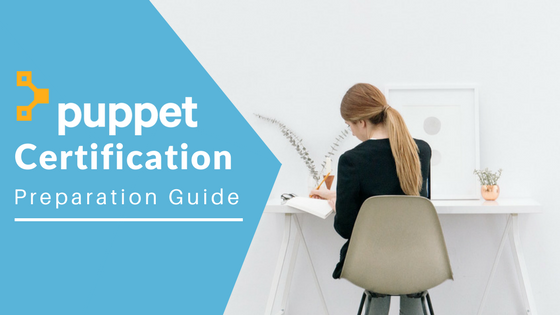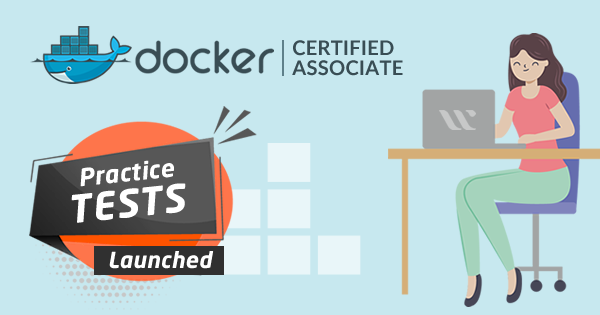Preparing for a Docker Interview? Here we bring the top 25 Docker Interview Questions that will help you to ace the interview.
Businesses want promising growth with the successful completion of projects. This notion is improved now with the demand for faster and smoother processes. Therefore, there is a huge demand for new and highly functional tools that can support business functions. One such tool is Docker, which is used for packing, shipping, and running applications on containers.
Towards the end of 2017, Docker had seen over 8 billion container image downloads. This spurred a huge demand for professionals who have Docker certification. So, candidates started looking for docker interview questions to make the most of all job opportunities. The application container market is estimated to reach a total value of $2.7 billion by 2020.
Frequently Asked Docker Interview Questions and Answers
It can be noted that software engineers, DevOps engineers, and information architects with Docker skills are in high demand. So, this article is intended to help the Docker professionals with their docker interview preparation. You will find 25 of the top docker interview questions with answers in this article.
1. What is docker?
Answer: This is probably one of the simplest docker interview questions. However, many candidates are focused on the study and practice of different Docker components. In such cases, they miss out on the actual definition of Docker. Docker is defined as a tool designed for developers to create and maintain their apps in an organized manner.
Containers facilitate the effectiveness and organization of applications in Docker. Developers could add their app and related data in the container and send it to the destination. Docker implements the Linux kernel for sending the packaged app to the destination from the developer. There is no need for an additional operating system for application development with Docker.
Learn more about Docker Fundamentals here: https://www.whizlabs.com/blog/docker-fundamentals/
2. What are the containers?
Answer: This can be considered as one of the most common docker interview questions. Candidates can expect multiple questions regarding containers, and this is the starting point for all. Containers are the basic software unit that stores the code and related dependencies. They help in smooth, quick and reliable deployment of applications from one computing landscape to another. Containers are created with the help of a Docker image. They have every element needed for running an application such as system tools, runtime, libraries, settings, and code.
3. What are the components of Docker architecture?
Answer: This is one of the best docker interview questions that you can find. The components of a Docker architecture are the host, client, and registry. The host contains the docker images, containers, and daemon. The daemon establishes a link with the registry. The docker images serve as application metadata and are stored in the Docker containers. A docker client is responsible for running operations for establishing communication with the host. The docker registry stores Docker images. There are two types of public registries, i.e. Docker Hub and Docker Cloud.
4. Can you illustrate the docker container lifecycle?
Answer: You can find this question throughout your docker interview preparation journey. The lifecycle of the docker container starts with the creation of the container. Then it gradually progresses to running, pausing, unpausing and starting the container. The next steps involve stopping, restarting and killing the container. The final step is the destruction of the container.
5. Is it possible to build environment-agnostic systems with Docker?
Answer: This can be one of the conceptual docker interview questions. As a response, you can simply state that three Docker features can help in building environment-agnostic systems. The three features are read-only file systems, volumes, and environment variable injection.
6. What is the difference between Docker and virtual machine?
Answer: This is one of the frequently asked docker interview questions. The response to this question is as follows:
- Every virtual machine runs its OS while Docker containers share the same kernel of the host.
- Virtual machines boot in minutes while containers take only a few seconds to initiate.
- An average laptop cannot run more than a couple of VMs. However, the same laptop could run many docker containers.
- You would not find many VM snapshots. On the other hand, images or snapshots are created one over others in the form of layers.
- The final response to one of the most common docker interview questions would be based on the use of resources. One set of VMDK or VMx files could be used for starting only one VM. In the case of Docker, one docker image can be used for starting multiple docker containers.
7. Define docker swarm.
Answer: You can find this question on every list of docker interview questions. Docker swarm is the native tool designed for clustering and scheduling of Docker containers. Docker swarm is used for creating and managing a group of nodes in a single Virtual System (VS) or Docker.
Enroll Now: Docker Swarm Basics Online Course
8. What are Docker images?
Answer: This is also an important mention in the frequently asked docker interview questions. The docker image is defined as the source of the Docker container. The build command helps in creating images, and they could produce containers with the run command.
9. Did Docker pioneer container technology?
Answer: This can be one of the confusing docker interview questions for candidates. The answer is no. Docker is a considerably new project. Many other development tools before docker offered containers. However, you can face follow-up questions with this one. You may be asked about the efficiency of Docker as compared to other tools. Here, you can point out to the cloud-based operations of Docker, which make it more adaptive and flexible. This clearly shows the efficiency of Docker in various scenarios that can arise in the course of the shipment or development process.
10. What is a Dockerfile?
Answer: You can find this one as one of the best docker interview questions asked commonly. The answer refers to the basic function of Docker in which it sends applications in containers to the destination. Dockerfile is the set of instructions for the containers so that the programs could function properly by following the instructions.
Also Read: Top 5 Docker Certification Preparation Books
11. If you exit a container accidentally, will you lose all the work?
Answer: There is no chance of losing information, data or other parameters by accidentally exiting a container. However, if you use a specific command for deleting the container, then you lose your work.
12. How can you find the status of a Docker container?
Answer: The command “docker ps-a” is used for identifying the status of a Docker container. This command will also provide a list of available docker containers having the same status on the host.
13. What are Docker objects?
Answer: Though not one of the top docker interview questions, you can find this in any interview. The basic answer for this question refers to Docker images, containers and services.
14. Do you know about Namespaces in Docker?
Answer: This question is also accounted for as one of the basic docker interview questions. Namespaces in Docker are a technology for the facility of containers in Docker. Every container is associated with a set of namespaces after its creation. Namespaces provide an isolated layer for each container, and every container operates in a particular namespace.
15. What is the basic and crucial requirement for creating a Docker container?
Answer: You can find this among the advanced questions in a docker interview. The answer to this question is the ‘default image’. An individual could find and access the default image through the Docker Hub. You can find the image by searching for specific domain required. After finding the image, you can follow the documentation to build a Docker container.
16. Which factors determine the number of containers you can run?
Answer: Even though there is no limit of containers that can run on Docker, hardware limitations come into the picture. Therefore, the two factors which can restrict the number of containers that can be run are related to hardware. They are CPU strength and size of the application.
17. What is the difference between Hypervisor and Docker?
Answer: This is one of the docker interview questions which tests your knowledge of other development tools. The hypervisor needs extensive hardware for proper function while docker is implemented on an actual operating system. This shows that Docker is highly fast and performs effectively with fluidity.
18. Explain the difference between Docker image and layer.
Answer: Docker image is created with a series of read-only layers. On the other hand, layer in docker represents instructions on the Dockerfile of the image.
19. How can you monitor Docker in production?
Answer: You can use Docker tools such as Docker events and docker stats for monitoring. Docker stats are accessed with a container ID, and they provide details of CPU and memory usage of a container. Docker events include commands for viewing the stream of activities in a Docker daemon. Some examples of Docker events die, attach, destroy, commit, detach and others.
20. What are the default networks in Docker?
Answer: This is one of the advanced docker interview questions which you cannot ignore. The default networks in Docker include bridge, host and none. The bridge is the default network to which containers connect if there is no specified network. Host network helps in connection to the network stack of host. The none network ensures connection to a container-specific network stack without a network interface.
Preparing to become certified in Docker? Follow this comprehensive guide for Docker Certified Associate exam preparation and prepare yourself to pass the exam.
21. What is Docker Compose?
Answer: Docker Compose can define as a YAML file that contains details on networks, volumes, and services for creating Docker application. This feature helps to create separate containers and host them alongside ensuring communication between them.
22. How can you check the Docker Client and Docker server version?
Answer: This is one of the command-based docker interview questions which you can face. The command for information on docker client and server versions is “$ docker version”.
23. How can I start, stop and kill a container?
Answer: This is another command-based question which you can find in a docker interview.
- For starting a docker container, use “$ docker start <container_id>”.
- For stopping a running container, use “$ docker stop <container_id>”.
- For killing a container, use “$ docker kill <container_id>”.
24. How to build a Dockerfile?
Answer: You can build a Dockerfile with necessary specifications by following this command.
“$ docker build <path to docker file>.”
25. What are the notable application areas for Docker?
Answer: The different areas in which Docker is applied can be presented as follows:
- Simplifying configuration.
- Code pipelines management.
- Debugging capabilities.
- Rapid deployment.
- Application isolation.
- Developer productivity.
- Multi-tenancy.
Conclusion
On a concluding note, we have reflected on some of the top docker interview questions. This discussion, however, did not cover all the questions that interviewers can ask you. It is essential to prepare thoroughly with Docker concepts and tools. Make a habit of implementing your inferences on Docker in practice. This can help you understand the different applications of Docker and explain them from a practical point of view.
A certification in your resume also acts as an add-on that helps you ace the interview. So, it is recommended to validate your skills and knowledge with a Docker certification. We offer online course and practice tests for the Docker Certified Associate exam for those who are aspired to become certified in Docker. If you are the one, join us now and prepare yourself to have a docker certification.
- Top 10 Highest Paying Cloud Certifications in 2024 - March 1, 2023
- 12 AWS Certifications – Which One Should I Choose? - February 22, 2023
- 11 Kubernetes Security Best Practices you should follow in 2024 - May 30, 2022
- How to run Kubernetes on AWS – A detailed Guide! - May 30, 2022
- Free questions on CompTIA Network+ (N10-008) Certification Exam - April 13, 2022
- 30 Free Questions on Microsoft Azure AI Fundamentals (AI-900) - March 25, 2022
- How to Integrate Jenkins with GitHub? - March 22, 2022
- How to Create CI/CD Pipeline Inside Jenkins ? - March 22, 2022




